Cost of living: Debt fears after Christmas on credit
- Published
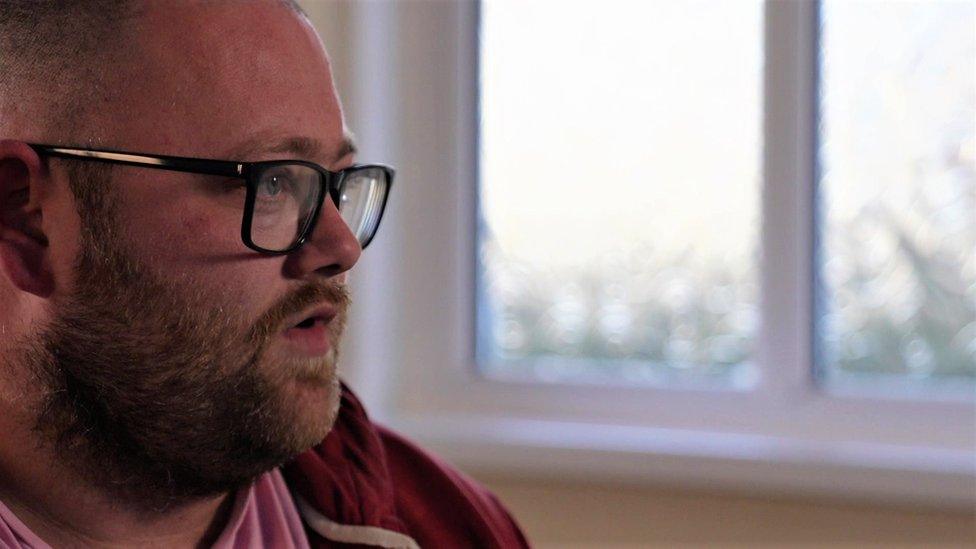
Samuel Beames went to the charity Christians Against Poverty to help sort out his debts
"Deep down, you feel like a failure," Samuel Beames admits.
After losing his job during the Covid-19 pandemic, he had crippling debts from loans and store cards.
Samuel, 32, from Cwmbran, Torfaen, has received help from a charity to try to sort out his financial situation.
But a debt advisor has warned that many more people in Samuel's position are borrowing money to try to cope with the rising cost of living.
"I was a manager in a shoe shop in Cwmbran, and after that, it spiralled. With no job, we were unable to pay the bills properly," Samuel said.
"I had a previous relationship that broke down, and I found myself becoming a single parent with my two children at the time, and I just couldn't pay back any of the loans."
He borrowed to pay for essentials, as well as to cover the cost of his first Christmas with the children as a single parent.
When he realised he was in above his head, he sought help from the Citizens' Advice Bureau, which suggested he speak to Christians Against Poverty.
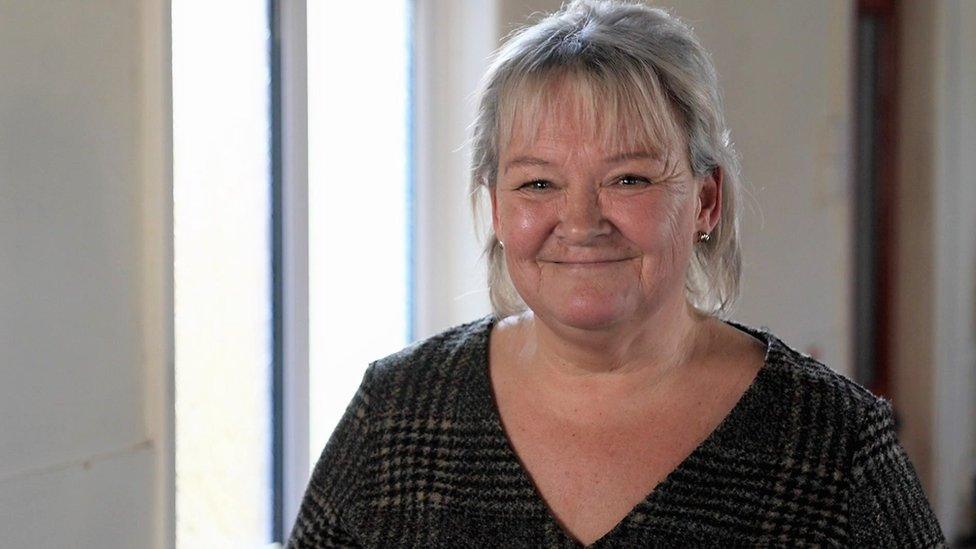
Karen Homans says she is worried for people who have paid for Christmas on their credit cards
"They make you realise that you're not in this on your own," Samuel said. "There's thousands, or millions of people, in the same sort of scenario."
Christians Against Poverty (CAP) said it helps anyone, with no pressure to be a Christian or to become involved with the religion.
Monthly costs
"People have put Christmas on credit cards, and are not sure how they are going to pay it off," said Karen Homans, the Wales area manager for CAP.
"We think there will be a knock-on effect in the coming months as people get those credit card [bills] in, and begin to realise they perhaps cannot afford the monthly costs," Ms Homans added.
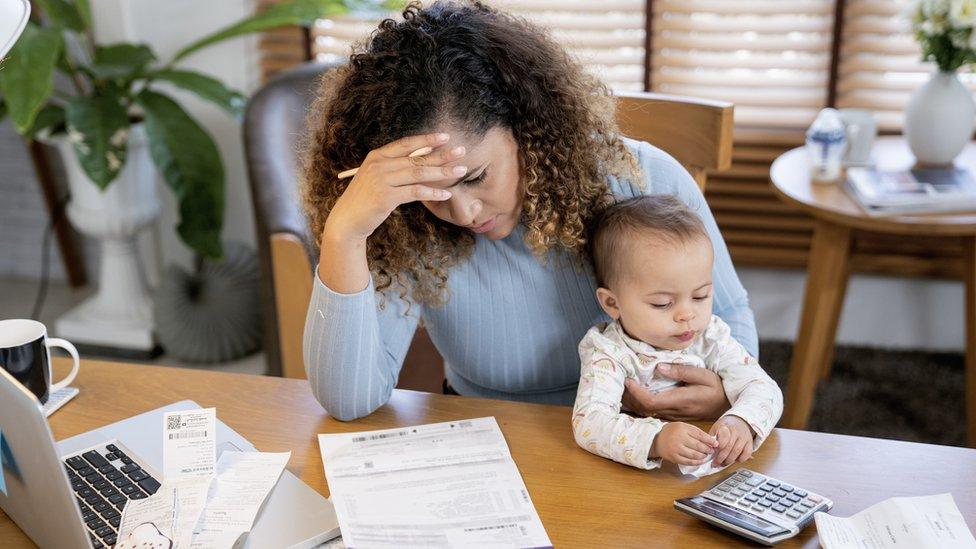
Debt advisers can talk to anyone who is feeling overwhelmed
The debt charity StepChange warned money borrowed for Christmas could take years to repay.
Individuals and organisations who help people in debt said they noticed an increase in demand since prices began to rise.
UK inflation fell to 10.5% in the year to December, but was still close to a 40-year high, and high prices have forced people to borrow money to pay for daily essentials.
Independent debt advisor Sorcha Kennedy said it had got "busier and busier" over the past twelve months.
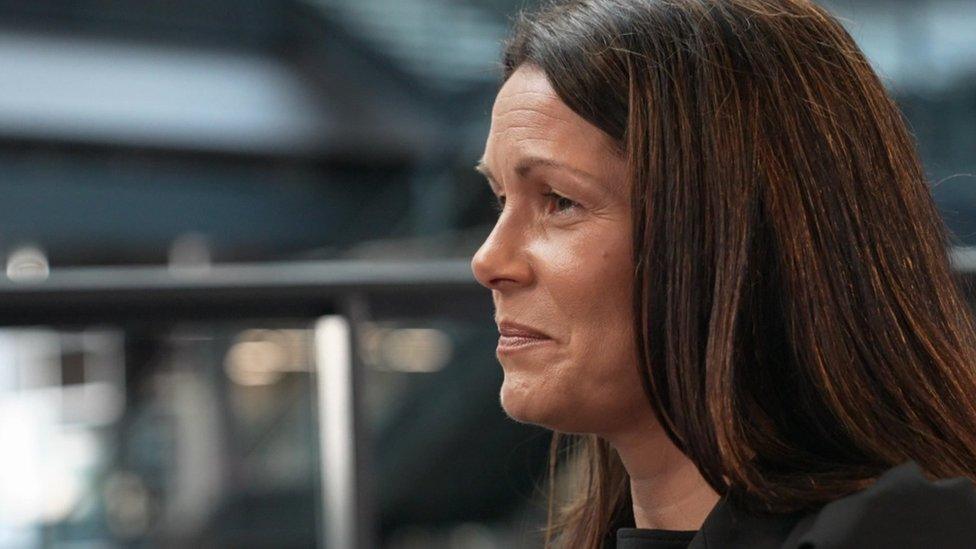
Sorcha Kennedy says the people coming to her for debt advise are increasingly on middle incomes
"This is the busiest and the hardest time I think that I've seen in 20-odd years of money advice.
"It's very hard because there's an income problem, and it's an expense problem, rather than just debt and wanton spending. It's the cost of living that's really, really difficult to manage."
Ms Kennedy runs a debt advice service called Money Saviour, having previously worked for the Citizens' Advice Bureau.
'Struggling quite a lot'
She said the demographic of her clients had changed, with people on middle incomes now more likely to seek help.
"We have a lot of working families, teachers, people working with the NHS that are having to use food banks that are not able to pay bills.
"And for a lot of those types of incomes, there's not actually funding [to support them]. A lot of the gas and electricity funding was for vulnerable groups, and quite rightly so.
"But there's a lot of people that miss out on funding.
"And they're the ones that we're seeing now, and that are struggling quite a lot."


How is the rising cost of living affecting you? Share your experiences by emailing haveyoursay@bbc.co.uk, external.
Please include a contact number if you are willing to speak to a BBC journalist. You can also get in touch in the following ways:
WhatsApp: +44 7756 165803
Tweet: @BBC_HaveYourSay, external
Please read our terms & conditions and privacy policy
If you are reading this page and can't see the form you will need to visit the mobile version of the BBC website to submit your question or comment or you can email us at HaveYourSay@bbc.co.uk, external. Please include your name, age and location with any submission.
- Published22 October 2022
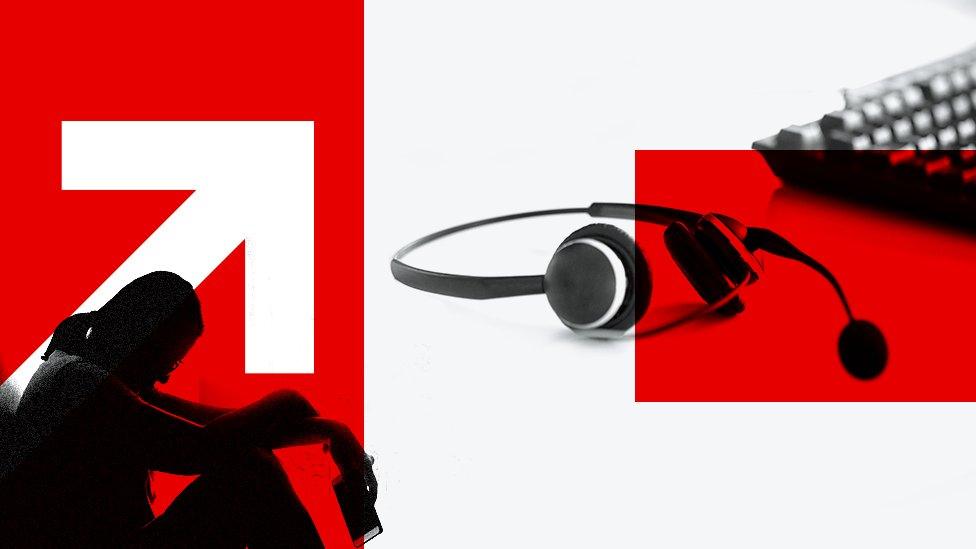
- Published6 December 2022

- Published17 March 2022

